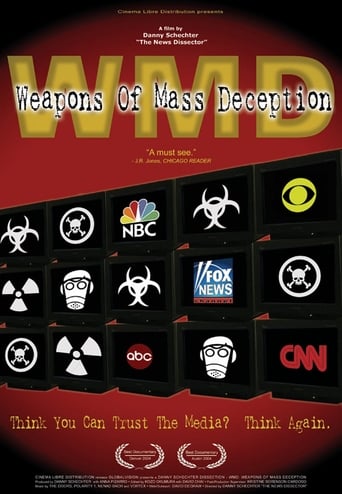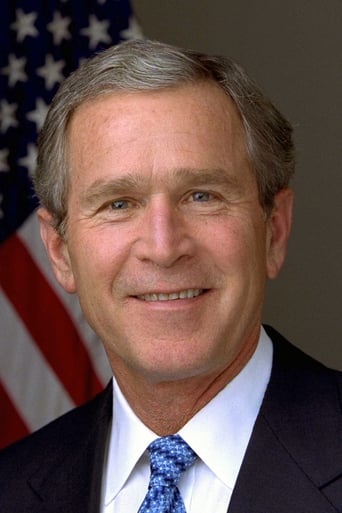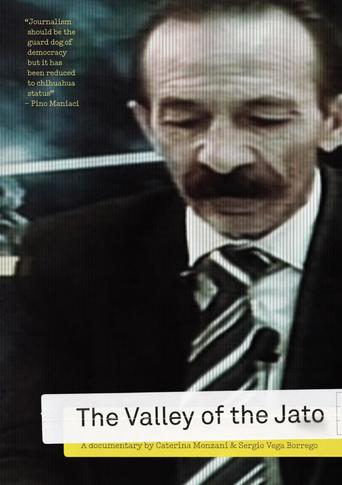

WMD: Weapons of Mass Deception (2004)
There were two wars in Iraq--a military assault and a media war. The former was well-covered; the latter was not. Until now... Independent filmmaker, Emmy-award winningTV journalist, author and media critic, Danny Schechter turns the cameras on the role of the media. His new film, WMD, is an outspoken assessment of how Pentagon propaganda and media complicity misled the American people...
Watch Trailer
Cast


Similar titles
Reviews
Memorable, crazy movie
This is a tender, generous movie that likes its characters and presents them as real people, full of flaws and strengths.
what a terribly boring film. I'm sorry but this is absolutely not deserving of best picture and will be forgotten quickly. Entertaining and engaging cinema? No. Nothing performances with flat faces and mistaking silence for subtlety.
Through painfully honest and emotional moments, the movie becomes irresistibly relatable
There are a few documentaries out there about the failure of the modern media however this particular one deals specifically with the lead up to the Iraq War. Personally, there is nothing really new here because we have seen the media being a mouth piece of governments for centuries. In fact, ever since people had begun writing, or speaking, governments have been looking for ways to control what is being said and what people actually hear. The difference between now and say, 18th century England, is that to be able to reach the millions of people with your message, vast amounts of capital are required to be able to launch a television station.This is changing by the way with the development of the internet and with websites such as Youtube. However, governments, and corporations, are still trying to control these sources of information. In China you have what is called The Great Firewall of China, where only government sanctioned information can appear on the internet. Even here, in the developed west, governments are trying to sanction the internet through putting restrictions on ISPs as to what can be accessed. However, it is a fine line, as it always is. While we may object to censorship of access to sites that criticise a government, we somehow feel that it is necessary to prevent access to websites that exploit children.Weapons of Mass Deception, though, deals explicitly with the standard media, both the newspapers and the television networks. While things are slowly changing, these two sources are still the main sources of information that we have, and while anybody with a little capital can set up and distribute a newspaper, vast amounts of capital are required to establish a television network, and even then, the barriers to entry, which include government licensing and access to bandwidth, are huge. More so, even if you want to get a piece shown on television, you need capital, as well as access to programming executives, to agree to actually show your piece. Even if you do manage to get it shown, people need to be able to have the television on to that specific channel at that specific time, to see it. With over two hundred channels to chose from, the chance of enough people actually seeing it is fairly slim.The problem is that when such a traumatic event as 9/11 happens to a country, the people of that country are going to be angered and offended. It does not matter whether the television networks do not band together calling for war, because the population are going to do that anyway. Has was shown when a couple of peaceniks turned up at Ground Zero arguing for make love, not war, the amount of anger and the desire for revenge, was immense. The television networks really had no choice but to fall in line, particularly since if they did not, it was not the government, but the people that were going to respond. At that time the government did not need to do anything, because the people where doing it for them.The Iraq War was different, and even then there was not much difference, because Sadam Hussein had always been demonised in the American Media since the Gulf War. He was public enemy number one (and in a way the American Government always needed a public enemy number one to distract the people from the corporate pillaging of the Earth) and it was almost expected that when such an event happened, people were going to point at one of the most hated people at the time, and that was Sadam. Let us ignore the fact that the government was looking for an excuse to go to war with him anyway (the war in Iraq was always on the agenda, it was simply that 9/11 gave them an excuse to go to war).Mind you, we are still in the midst of a changing time as I write this. Information is slowly going online, and the media moguls are now finding that their control of information is slowly eroding. Governments (even in the West) are looking for ways to control this access to information, but organisations are fighting this, and attempted to prevent this control. Youtube provides lots of different channels, from people who argue for an extreme right-wing view of society to an extreme left-wing view. However, we, those of us who value freedom of speech, and the freedom to put our own views and thoughts up in the public sphere, need to continue to be vigilant and be ready to challenge any attempt to censor the internet.
This is an excellent documentary showing how the Bush administration cowed, seduced and used the media to sell the Iraqi war to the American public. It is also an indictment of the media for its failure to accurately report the news during the build up to the war and during the war itself. The media, from the lofty New York Times to the unfair and unbalanced Fox News, bought hook, line and sinker the administration's tale of weapons of mass destruction in Iraq and helped Bush and the neocons prepare the American public for the invasion.A nice piece of war-prep irony revealed in the DVD was the administration's disinclination to call the plan "Operation Iraqi Liberation" since that would have led to the unfortunate (and perhaps telling) anagram "OIL." The media turned the war into a "militainment." Bottom line, the news networks stood to make mass bucks by covering the war, by playing it up in red, white and blue sets, and playing on the public's need to escape from the usual TV fare. Exciting graphics were designed by people who worked in the computer game industry. Curiously the rule, "if it bleeds, it leads" was suspended because there was way, way too much gore to show the public, especially while they were eating dinner; and anyway it would not serve the purposes of the administration to show all those dead and dying Iraqis (especially the children) smeared with blood and gaping wounds, nor ironically would it serve to show the maimed American troops. In fact, it would be considered down right unpatriotic to do so. (You'll recall the flap over photos of flag-covered coffins of dead American soldiers.) The war had to be sanitized and made palpable. Consequently what prevailed was "best bomb" footage showing really awesome explosions--buildings blown to bits, cars flying into the air as Rumsfeld enthused over "shock and awe." The fact that the shock and awe resulted in human casualties was very much beside the point. As has been said, "In war the first casualty is truth."The tactic of "embedding" reporters with the military was a stroke of genius by the Bush administration because it ensured one-sided and biased reporting on the war. Being embedded (not precisely to say "in bed with") the young, idealistic American soldiers for weeks at time, being supported and protected by those soldiers and sharing their experiences forced the reporters to identify with the soldiers and to assume a similar point of view.Sadly, the media swallowed the administration's disinformation about the never-found weapons of mass destruction without noticing that the primary justification for the war was a sham. There was also no link between Al Qaeda and the Saddam Hussein. Osama bin Laden hated the B'athist regime of Saddam Hussein almost as much as he hates Israel and the United States since Saddam Hussein is about as Islamic as say Rupert Murdoch. And of course Saddam Hussein had no use for bin Laden since he would be uncontrollable and dangerous to his regime. So that rationale was also a sham. The idea that we would be doing the people of Iraq a favor by getting rid of Saddam Hussein was also a sham because (1) any invasion would bring more misery to the people than the continued presence of Hussein; and (2) the Iraqis would rather be ruled by a dictator than be occupied by a foreign power (which is the case for practically any country in the world, including our own).And finally the idea that by invading Iraq we would be fighting the war on terrorism (which became the administration's johnny come lately justification for the war) is not only a sham and a lie, but is actually counterproductive. The invasion of Iraq has been a setback in the war on terrorism, and actually a diversion from it. It could be argued that Bush invaded Iraq because after the invasion of Afghanistan he had no plan to go after Al Qaeda and so created a diversion--a very costly and stupid diversion.The mainstream media failed not only as news sources, but editorially, and as news analysts. Like Bush and the neocons in the White House, the news media failed to look beyond "best bombs" and "shock and awe" and "mission accomplished" to the aftermath. The media also failed to educate the public on just how absurd the idea is that you can force democracy onto a mostly Islamic country, especially a country artificially formed from such diverse elements as the Shi'a, the Sunni and the Kurds. Furthermore, because the Shi'a are in the majority, even if a democracy is formed, it may be voted out with an Iranian style theocracy the likely result--not exactly what the White House had in mind. Another likely result is another dictatorship following a bloody civil war.Director Danny Schechter also points to how the press was controlled and manipulated during White House press conferences. Any reporter who asked a tough question of the press secretary or the president would not be called upon again. In order words, the press conferences were (and largely still are) propaganda opportunities for the Bush administration.It should never be forgotten that however mainstream or "liberal" or enlightened the individual reporter may or may not be, it doesn't matter because the media is controlled by conglomerate interests (think Rupert Murdoch) that own the stations, magazines and newspapers, and those guys are conservative and want support for their man in the White House, and they will not long tolerate anything else.Question: with the consolidation of media into fewer and fewer hands, are we witnessing the beginning of the death of a free press in the United States?(Note: Over 500 of my movie reviews are now available in my book "Cut to the Chaise Lounge or I Can't Believe I Swallowed the Remote!" Get it at Amazon!)
"WMD: Weapons of Mass Deception" offers an intelligent and critical look the media and how it was more or less manipulated or controlled by interests other than journalism during its coverage of the run up to Operation Iraqi Freedom and beyond. Danny Schechter uses his experience in news broadcasting combined with original film, interviews, file footage, print, etc. to examine the role of news media in OIF and how the war was delivered to the public as a carefully package and planned media event not unlike the Superbowl. An insightful study of news which is much less agenda-driven propaganda than Michael Moore's "Fahrenheit 911" and consequently less entertaining, "WMD..." will appeal most to those interested in major network news broadcasting. (B)
This is a documentary about the American media and their relationship to the military. It's all about spin. Why were newspapers and TV news so strongly pro-war in the prelude to the invasion of Iraq? One obvious reason is that they believed what the Bush administration told them about weapons of mass destruction, but others are suggested.Parts of this movie are quite chilling, such as the footage of an American tank firing on the Palestine Hotel in Baghdad, which resulted in death and injuries to journalists staying there. The film reports on some very interesting facts, such as the relationship between which news networks a person watches and how misinformed they are.One thing this movie is NOT about is the brutality of Saddam Hussein, as was suggested by another reviewer. There are some graphic scenes of children in hospitals, but their injuries resulted from American bombing.If you think that Bush's invasion of Iraq was part of the war on terrorism, or believe that Iraq collaborated with bin Laden in planning 9/11, then you will think this film is hopelessly biased to the left.














